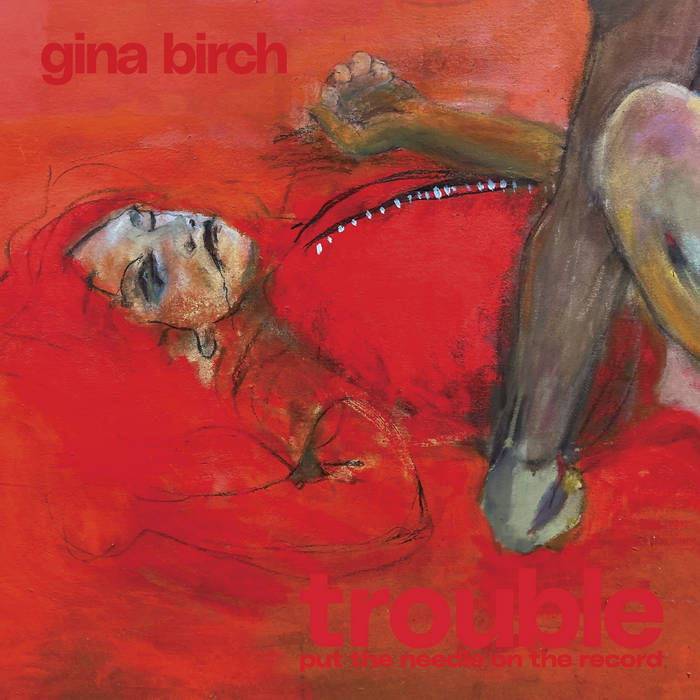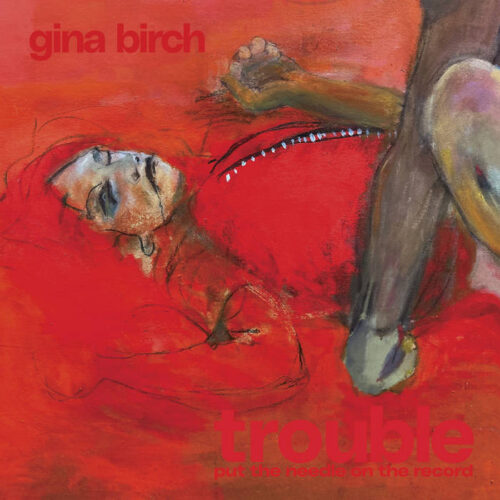An artist, filmmaker, and founding member of the game-changing late 1970s collective The Raincoats, Birch is an artist who is not afraid of tackling difficult subjects. She goes straight to the point with the first track, ‘I Thought I’d Live Forever’. While the lyrics address solemn matters such as ageing and mortality, the comically squeaky backing vocals and a deliberate pastiche of Portishead’s ‘Sour Times’ deliver the message instantly: Birch doesn’t give a damn. Spectral dub with sci-fi effects a-la King Tubby on ‘Doom Monger’ is a sedative antidote to the narrative about “crazy monsters screwing us more each day”, hinting at the madness of contemporary politics and those who define its course.
In keeping with its title, Trouble arrives as a more explosive record than its predecessor, Birch’s first solo album, I Play My Bass Loud. Much like her paintings, the eleven-song release is defined by mood swings: from frenetic post-punk on ‘Causing Trouble’ to a meditation on the mundane with tracks like ‘Happiness’, inspired by a Chinese restaurant of the same name on the Seven Sisters road in North London.
A professional “troublemaker”, Birch pays homage to similarly profound activists. Two of them, Cosey Fanni Tutti and Caroline Coon, are featured on ‘Causing Trouble’, reading the names of inspiring women – from Elizabeth I to Angela Davis, Grace Jones and Nina Simone, among many more. Whispered, intoned and introduced in the manner of a cabaret compère, they are carried across motorik beats and 8-bit keyboard sounds – like a message in a bottle for the next generation.
While the visual and lyrical content is unnerving, musically Trouble is light, at times humorous and playful, slightly reminiscent of avant-garde karaoke experiments by the Japanese duo Frank Chickens. The minimalist electronics on ‘Keep To The Left’ sounds like a musical cousin of ‘We Are Ninjas’, the punchy manifesto from Frank Chinkens’s 1984 debut album We Are Frank Chickens. Although it encompasses different genres – from wacky dubstep (‘Don’t Fight Your Friends’) to cello-led art rock with a nod to Van Der Graaf Generator (‘Cello Song (Tape Echo)’) – the smooth and cohesive production (with the help of Youth from Killing Joke and Michael Rendall) makes Trouble an appealing listen.



